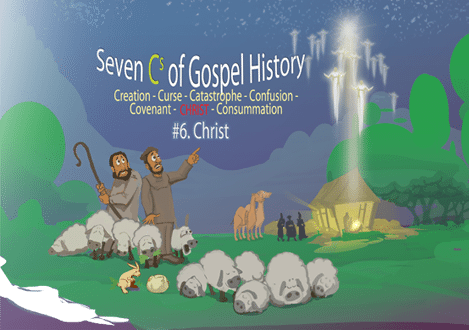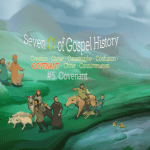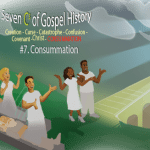
Just over 2,000 years ago, a baby boy was born in the town of Bethlehem in Judea. He was unlike any other boy who has ever been born, because He was the Son of God. His name was Jesus. Angels announced His birth to shepherds (Luke 2), and then, later, ‘wise men’ came to worship Him (Matthew 2). We call Him the Lord Jesus Christ. ‘Christ’ means ‘the Messiah’ or ‘the anointed one’.
Jesus was one of us
When Jesus was born, God was keeping the promise He had made to Adam and Eve, after they disobeyed Him in the Garden of Eden and brought the Curse of death into the world (Genesis 3). This promise was that one day God would send a Saviour to rescue us from the power of Satan (Genesis 3:15). This Saviour was called the ‘seed of the woman’. This was fulfilled when the Holy Spirit came down to a virgin called Mary, and she conceived Jesus—without a human father (Matthew 1:18–25, Luke 1:26–38).
To be our Saviour, Jesus had to be one of us. The Old Testament prophet Isaiah called the coming Messiah a ‘Kinsman-Redeemer’, meaning someone who is related to those he redeems or saves (Isaiah 59:20). So in Luke Chapter 3 it traces the human ancestry of Jesus’ mother, Mary, all the way back to Adam (a direct creation of God, not the result of evolution). The Bible then calls Jesus the ‘last Adam’ (1 Corinthians 15:45)—there is no other Saviour (Acts 4:12). The one and only way to God is through Jesus (John 14:6).
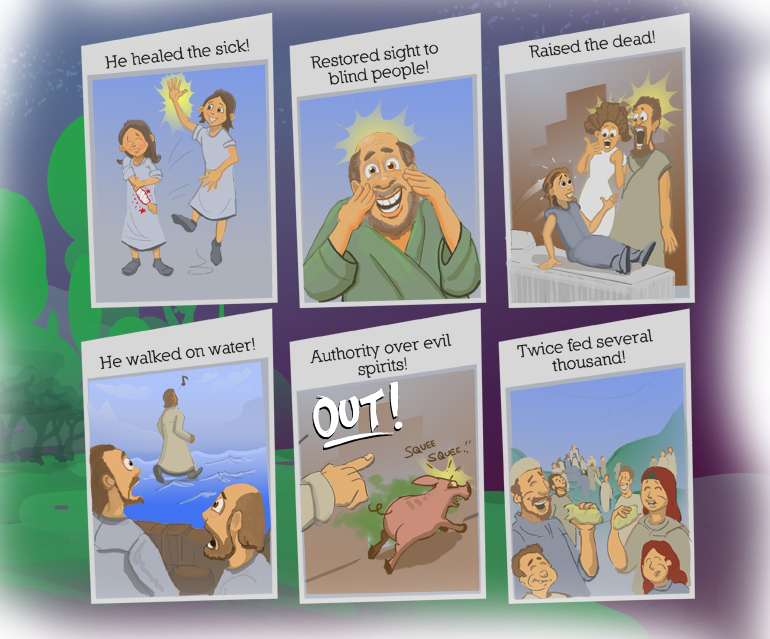
Jesus died for us
The Bible tells us that God’s Son was the Creator and existed before He became human (John 1:1–3,14) as the Lord Jesus. In His ministry on earth, He healed sick people, He gave sight to blind people, and He raised the dead. He walked on water, and He calmed raging storms. He had authority over evil spirits, and twice He fed several thousand people from small amounts of bread and fish.
Jesus was tempted just as we are, but He never committed any sin (Hebrews 4:15). Sin is anything we do, or say, or think, that God tells us in the Bible not to do, or say, or think—or when we don’t do things that God tells us we should do. In the Old Testament, when someone sinned and was sorry, they could sacrifice a lamb (Leviticus 4:32–35). In the New Testament, Jesus is called “the Lamb of God who takes away the sin of the world” (John 1:29).
Because Jesus was the sinless Son of God, His death on the cross could fully pay the penalty for the sins of everybody in the whole world. So, by His death, He obtained a free pardon for all those who believe.
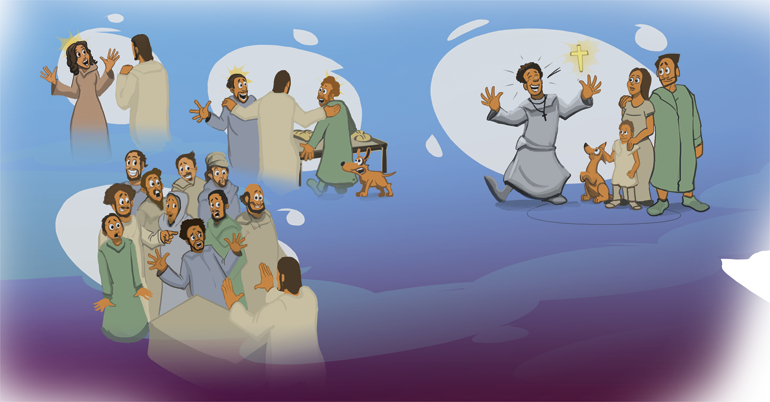
Jesus rose from the dead
After Jesus died on the cross, His dead body was put into a cave-like tomb carved in rock that was then sealed with a huge boulder. On the third day, the women came to finish anointing the body with spices, but the boulder had been rolled away from the tomb by an angel (Matthew 28:3). The tomb was empty. Wow! God had raised Jesus back to life.
The angel reminded the women there that Jesus had said He would rise from the dead, and now He had done just that (Matthew 28:5–6). No one in the history of the world has ever done this—except Jesus.
Over the next forty days, many people saw the risen Jesus. The very first was Mary Magdalene, and then three other women. Later Jesus appeared to Peter, and then to two disciples on the Emmaus Road (Luke 24:13–15), as well as to ten of the disciples in an upstairs room that was locked (John 20:19).
A week later He appeared to the same ten disciples again, plus Thomas (John 20:26). Then to seven of them as they were fishing (John 21:1–14), and later to the eleven disciples at a mountain in Galilee (Matthew 28:16). He also appeared to over 500 people at one time, as well as to James, and finally, to Saul of Tarsus, who became the Apostle Paul (1 Corinthians 15:4–8). So the Resurrection of Jesus is one of the best-confirmed events in history.
Jesus told His followers, now called the Church, to go into all the world and tell everybody the Gospel (Matthew 28:18–20). The Gospel is the wonderful good news that, because Jesus died and rose again, we can receive forgiveness of sins, and so escape the eternal punishment our sins deserve.
Meanwhile, Jesus has gone back to heaven. From there He sends the Holy Spirit (John 16:7) to live in the hearts and minds of all who believe in Him (Romans 8:9–11). This is to help us live lives that are pleasing to God, and to guide us in serving Him.
How do I receive forgiveness of sins?
Here are some verses from the Bible that explain how you can receive forgiveness of sins and know that you will live with Jesus for ever:
“God loved the world so much that He gave His only Son, that whoever believes in Him should not perish but have eternal life” (John 3:16).
“If you confess with your mouth that Jesus is Lord and believe in your heart that God raised Him from the dead, you will be saved” (Romans 10:9).
“I write these things to you who believe in the name of the Son of God that you may know that you have eternal life” (1 John 5:13).
So becoming a follower of Jesus involves responding to the prompting of the Holy Spirit to admit to God that you are a sinner, and that you believe Jesus died for your sins and rose from the dead. God promises that: “Everyone who believes in Him receives forgiveness of sins through His name” (Acts 10:43).


